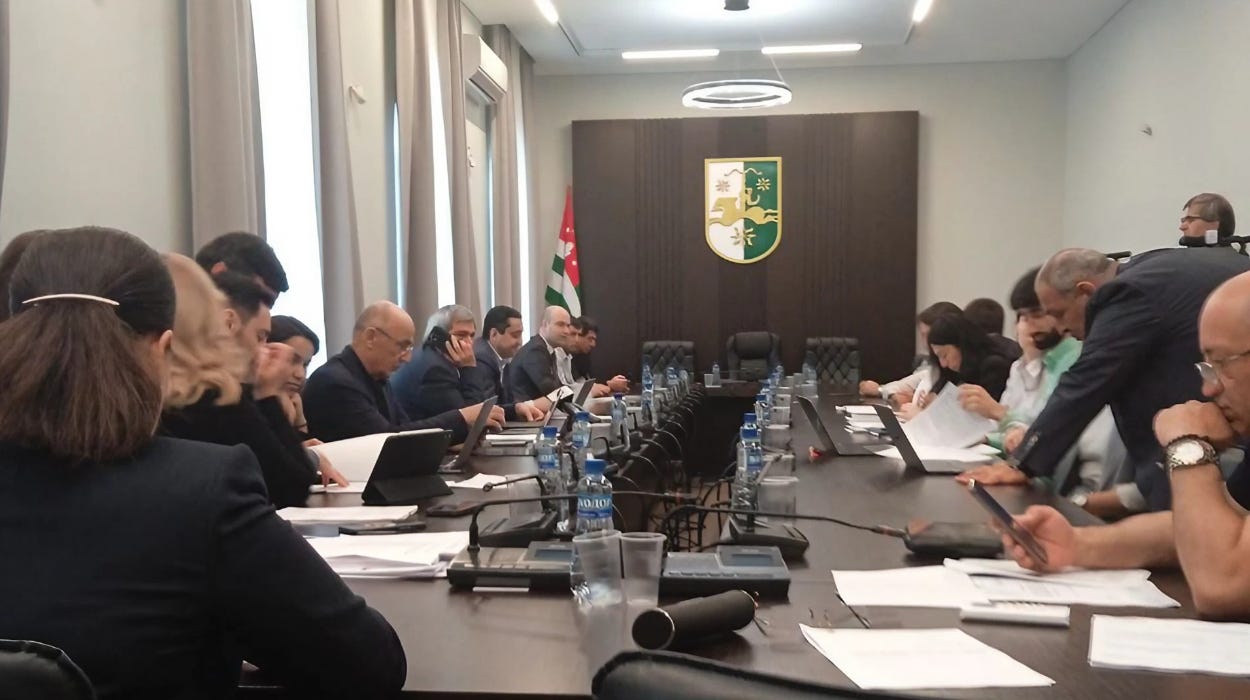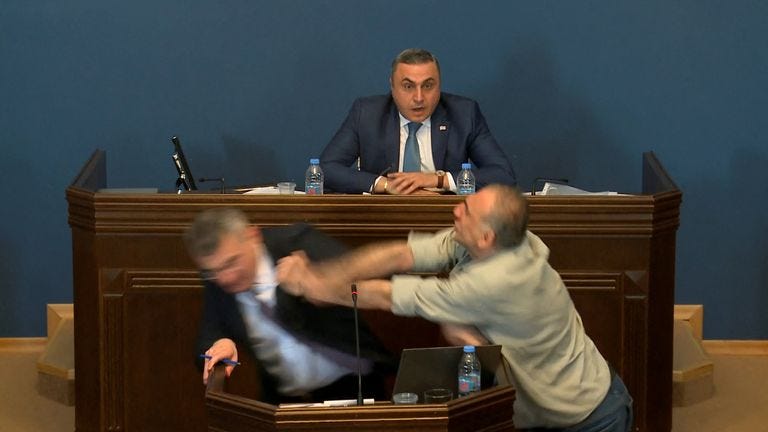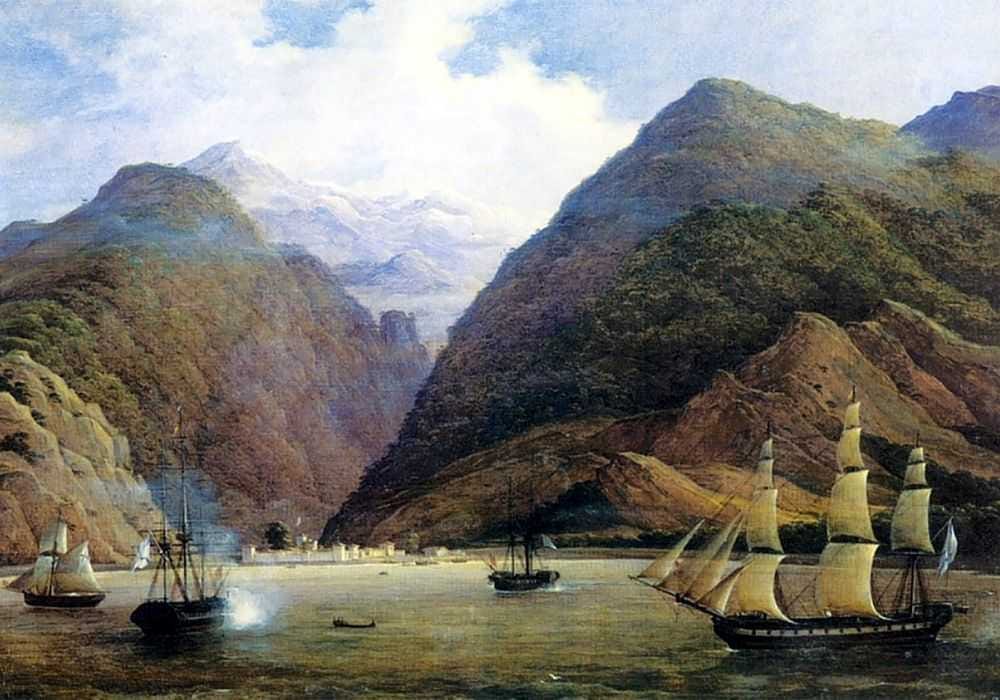Abkhazia Weekly Brief | Issue 1
Your go-to source for the latest updates and insights from Abkhazia.
Welcome to the first edition of the “Abkhazia Weekly Brief,” brought to you by AbkhazWorld.
This series aims to keep you informed with concise updates and essential insights into the latest happenings in Abkhazia. Each week, we will provide brief highlights of key political, economic, and social developments, along with direct links to in-depth sources for those looking to explore further.
This weekly brief is designed to provide a quick and accessible overview, connecting you directly to the full stories with just a click.
Join us as we navigate through these evolving stories, ensuring you stay informed about the changes and challenges shaping Abkhazia today.
Abkhazia Weekly Brief | Issue 1
In a historic first for his presidency, Aslan Bzhania has vetoed the amendments to the 2024 budget, which were recently passed by the Abkhazian Parliament. This decision followed a particularly contentious session on April 3rd, where the focus was on funding the much-needed repairs of two long-neglected roads in the Sukhum region. Deputies Kana Kvarchia, Fazlybey Avidzba, and Levon Galustyan spearheaded the initiative to allocate 37 million rubles ($392,000) for these repairs. The president's use of his veto power was likely influenced by this proposal, aimed at improving conditions for the residents of Sukhum.
Deputy Kan Kvarchia has spoken out against what he describes as injustices perpetrated by the government itself, in light of President Aslan Bzhania vetoing and returning a recently passed law that introduced changes to Abkhazia's 2024 budget. In an interview with Aiashara, Kvarchia criticized the administration's actions: “Such nonsense and absurdity in document form have seldom been seen from the presidential administration in previous years. It fails to stand up to any form of criticism, both in terms of its format and content.”
A parliamentary committee is reviewing a presidential proposal to toughen penalties for spreading false information under defamation laws, with further committee discussions planned. While the General Prosecutor's Office supports enhancing sanctions, especially for officials, the Human Rights Commissioner's Office fears this could lead to many criminal cases for misinformation. The proposal, criticized for vague terms and potential broad application, has sparked varied reactions among deputies, with concerns over its interpretation and the practical implications of its enforcement. The discussions are set to continue.
Tengiz Dzhopua, a public activist, has expressed criticism regarding the head of state's enthusiasm for the proposed defamation law, suggesting it is misplaced. Dzhopua argues that if such energy had been directed towards resolving the country's cryptocurrency mining issues, life might not be as bleak. He contends that the law is being pushed to prevent free speech and truth-telling about government inaction, corruption, and lies, which he claims keeps people in poverty and despair. Dzhopua sarcastically notes that without this law, the current leadership cannot deceive the electorate again or secure a second term, ending what he describes as a comfortable existence spent shuttling between Sukhum and Moscow seeking business deals.
“Chernomorenergo” [Abkhazia's State-Owned Energy Company] has announced the cancellation of rolling blackouts in Abkhazia. All restrictions on electricity supply will be lifted starting at midnight on April 20th. These periodic blackouts were first implemented in the western part of Abkhazia and in Sukhum on January 26th, initially cutting power for four hours daily, which was later increased to six hours. The gradual lifting of these restrictions began on April 14th by "Chernomorenergo".
Inal Ardzinba, the Foreign Minister of Abkhazia, has taken on a new role as a television host. His show, "Global Majority," features an interview with Syrian President Bashar al-Assad and will broadcast on Russia's Channel One on April 21st. The series aims to shed light on nations and leaders who assert their independence amid external pressures, with a spotlight on Assad as a key figure challenging Western influence.
On April 16th, the Ministry of Taxes and Collections froze the accounts of the Centre for Humanitarian Programs (CHP), a non-governmental organisation, and initiated unauthorised audits of personal accounts belonging to some CHP employees and other NGO workers. Said Gezerdaa, a lawyer for the organisation, has labelled these actions by the tax authorities as illegal and incompetent. He accuses them of carrying out politically motivated orders, asserting that these forced audits are a violation of the law, as reported to Apsny Portal.

Lyudmila Achba, a lawyer for the Public Reception on Human Rights, has reported to Apsny Portal that the accounts of the Centre for Humanitarian Programs (CHP) remain unjustly frozen. This follows an audit that concluded last week, which found no violations in CHP's operations. Achba highlighted that if the accounts are not unfrozen by the end of April, the beneficiaries of these funds will be left without legal assistance. This situation persists despite the audit's clean bill of health, raising concerns about the ongoing financial restrictions imposed on the NGO.
The registration rules for foreign nationals and stateless persons in Abkhazia have changed. According to Madina Margania, head of the legal department at the Migration Service, individuals planning to stay for more than 14 days now must register their temporary address and pay a registration fee of 200 rubles. This fee is strictly a domestic administrative procedure and is not related to any entry tariffs or tourist taxes. After staying for 14 days, visitors are required to inform the relevant authorities of their whereabouts within the country.
A ten-day dog sterilisation campaign is currently underway in Gagra, organised by the "Bagira" animal protection charity with support from the Bridget Bardot Foundation and a German animal welfare group. The focus is primarily on pets to prevent unwanted litters, although efforts are also being made to manage stray populations. Already, 250 animals have been sterilised. The initiative draws pets from various cities, utilising Gagra's animal shelter—the only operational shelter in the area approved for such activities.
The State Language Policy Administration has introduced five new Abkhazian publications for children and adults, according to Apsnypress. The collection includes the "Abkhazian Language" textbook for high school and college students, written by Aldona Azhiba, Diana Shamba, and Adgur Shinkuba. Another release is a bilingual Abkhazian-Russian clerical guide containing standard document and form templates for official use. The lineup also features two poetry collections—"The Sun Shines" with children's poems by Platon Bebia, and "The Sun of My Homeland" by Vladimir Tsvinaria—and a book of Hans Christian Andersen’s fairy tales, translated by Sergey Zukhba.
Saria Amichba, an esteemed linguist and associate professor at Abkhazian State University, has died at 89. Professor Amichba's career started at the Sukhum State Pedagogical Institute and spanned since 1964 at Abkhazian State University, where she taught courses in General Linguistics, and the Abkhaz and Abaza Languages. She also influenced the Abkhaz-Abaza and Caucasian diasporas with her educational sessions across various cities including Makhachkala, Karachayevsk, Ankara, Istanbul, Inegol, and London.
Starting May 1st, bus fares in Sukhum will increase from 10 to 15 rubles. Leonid Shulumba, director of the Sukhum motor transport enterprise, announced the change, which has been approved by the Ministry of Economy. The fare hike is due to rising costs for fuel, spare parts, tires, and other consumables.
The Legal Affairs Committee of the Georgian Parliament has given the preliminary green light to the controversial foreign agent bill, amid disturbances in parliament and protests outside. The committee decided to advance the bill late Monday night as tens of thousands of demonstrators gathered outside the parliament building. Georgian President Zourabichvili made a statement on X, referred the Georgian police as ‘spetznaz’:
“massive peaceful demonstration of civil society in Tbilisi against the “Russian law ». « spetznats » with water and gas canons ready to pass to action against civilians defending their European future. Arrests are ongoing. Georgia will not surrender to resovietisation!!”
― Salome Zourabichvili
Once again, we stand with President Zourabichvili: “Georgia will not surrender to re-sovietisation!” Madam President and her people should accept their post-Soviet borders, as Stalin's (Dzhugashvili) Soviet Georgian borders no longer exist.
Selective Georgian approach to resovietisation: On one hand, they are against it, but when it concerns their Soviet borders, they are in favour.
AW Updates
Imam Alimsultanov: Melodic Voice of Chechen Valor and Undying Legacy
Through the Artist’s Eye: Abkhazia in the 19th Century
This article delves into how 19th-century Russian artists depicted Abkhazia during their travels to the Caucasus. We explore a collection of these historical artworks, showcasing sites like the Gagra fortress and Sukhum-Kale as they appeared over a century and a half ago.








